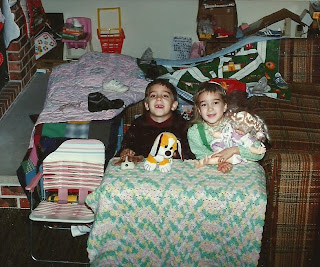Yet coming alongside a sinning
fellow believer, knocked down by negative choices, involves the same spiritual enabling as
reaching out to those buffeted by living in a fallen world. Just before that
section, in Galatians 5:22-23, Paul listed the “fruits of the spirit” that are
evidence of a growing life in Christ. In serving one another, we all need love,
joy, peace, patience, kindness, goodness, faithfulness, gentleness and self-control.
Perhaps a better spiritual
“furniture dolly” analogy comes from Jesus’ healing of paralytics. In ancient Palestine
Friend to paralyzed man: “Hey, Jesus,
the great miracle worker and teacher is in town. You’ve got to go see Him. I
think He could heal even you.”
Paralytic: “That would be my wildest
dream come true. But how could I ever get there?”
Friend: “I’ve got some buddies
coming. The four of us will carry your
mat. We just have to do this.”
In contrast is the healing told in
John 5. This man, an invalid for 38 years, had begged at the pool of Bethesda
Jesus’ reply is a picture of His
great love for us, even when we have zero to little faith. He simply said, “Get
up! Pick up your mat and walk.” At once,
the man was healed. I’m struck by its fulfillment of Isaiah’s prophetic sketch
of a suffering Messiah: “Sure he took up our infirmities and carried our
sorrows” (Isaiah 53:4).
We cannot, in our own power, carry the weight of the world’s sins and sorrows. That’s God’s job. But when He calls us to be “burden-bearers”—whether that means wise counsel, a listening ear, prayerful support, or practical help —He is right behind us as we face the “load” of need. In moving that hurting person closer to Him, faith turns the wheels of that spiritual “dolly.”






